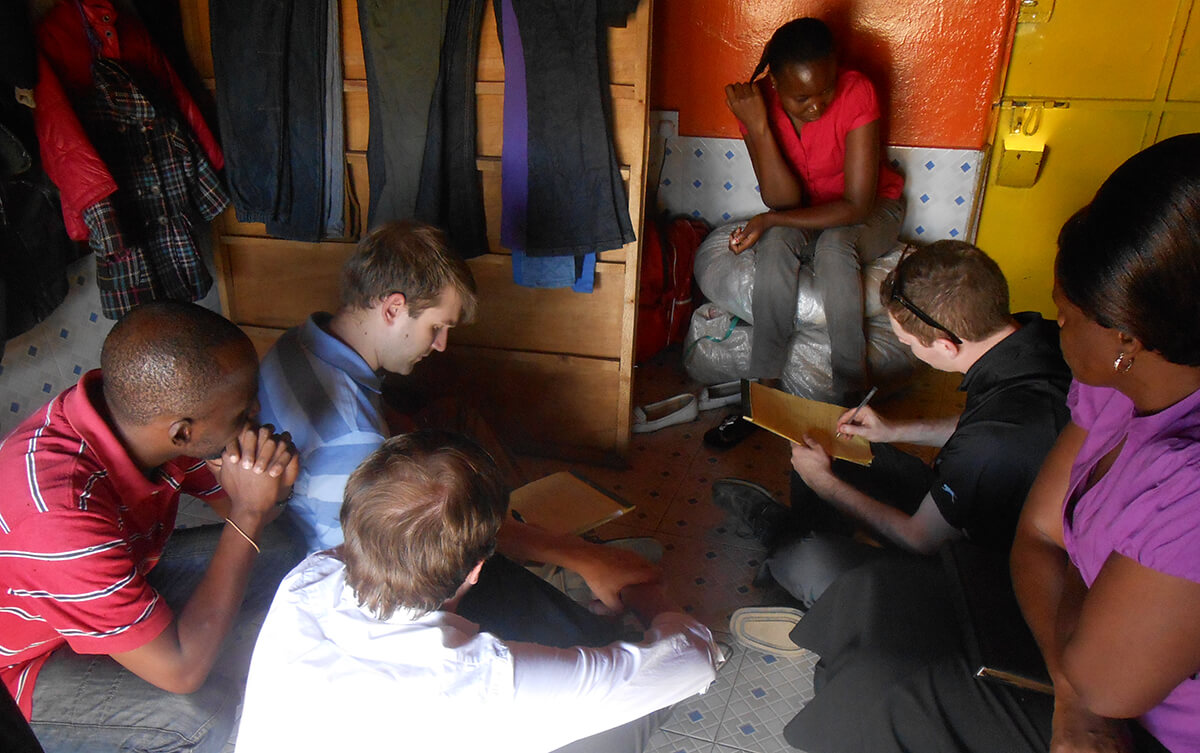 Notre Dame economists interview the owner of Mama Njenga’s Boutique in Nairobi, Kenya.
Notre Dame economists interview the owner of Mama Njenga’s Boutique in Nairobi, Kenya.
__________
In a dense Nairobi slum best known for its toxic garbage dump, the crowded streets are lined with roadside stands.
With no job prospects, residents’ best chance to eke out a living comes from selling foods and handcrafted goods at these tiny stalls.
Three assistant professors in Notre Dame’s Department of Economics—Wyatt Brooks, Kevin Donovan, and Terence Johnson—are researching ways to help those entrepreneurs succeed and increase their income.
“About 60 percent of people in sub-Saharan Africa run businesses,” Donovan said. “So, if you care about their welfare and you want to figure out how to improve their standard of living, one way to do it is to start with the jobs that they are doing and see how they can be improved.”
The challenge for the three researchers was discovering how to best help the business owners. Many organizations, including the World Bank, have been working to offer business training to these micro-enterprises for years. Recent academic studies have evaluated the effectiveness of business classes, however, and found they do very little to increase profits.
“In response to that, I think a lot of people have started saying that training doesn’t work,” Donovan said. “But maybe it’s not that training doesn’t work—maybe it’s that the way we’re thinking about training is wrong.”
A lot of people have started saying that training doesn’t work. But maybe it’s not that training doesn’t work—maybe it’s that the way we’re thinking about training is wrong.” Kevin Donovan, assistant professor of economics
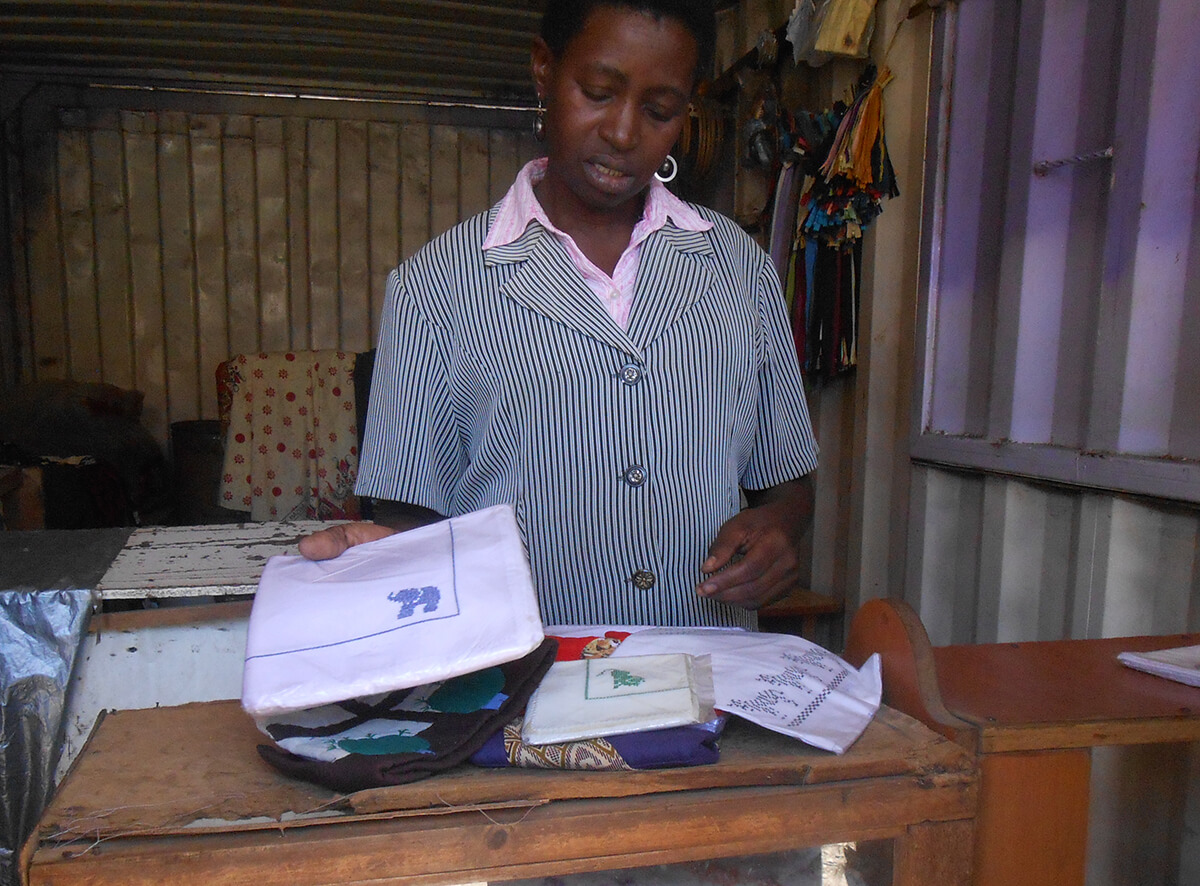 Garments are folded in a Nairobi small business.
Garments are folded in a Nairobi small business.
Harnessing Skills
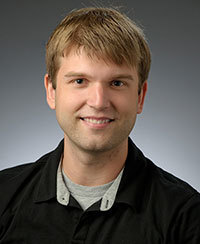 Wyatt Brooks
Wyatt Brooks
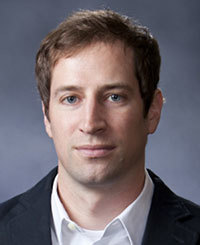 Kevin Donovan
Kevin Donovan
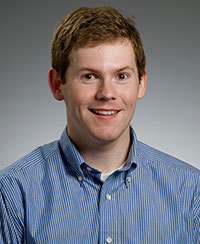 Terence Johnson
Terence Johnson
With support from the Ford Family Program in Human Development Studies and Solidarity in Notre Dame’s Kellogg Institute for International Studies, Brooks, Donovan, and Johnson traveled to Dandora, on the east side of the Kenyan capital of Nairobi, in spring 2014 to conduct research on the most effective strategies to help young female business owners, who make up the majority of entrepreneurs there.
The economists surveyed 3,300 businesses in the area and created focus groups to talk with business owners about their needs. That sparked the idea to create a mentorship project, which matched young entrepreneurs with more experienced, successful business owners.
“We realized that there are successful small businesses in Dandora,” Donovan said, “and, by definition, their owners must have the skills necessary to run a business well. So we needed to figure out a way to harness those skills and see if we could transfer them to new young business owners.”
They designed a study where a sample group of 135 female entrepreneurs were given traditional small-business training classes through a local university, a similarly sized group of women were matched with a mentor, and a third sampling was tracked as a control group.
In the mentorship group, the young entrepreneurs met weekly with their assigned advisers for one month and were given four broad questions to discuss—what challenges they faced in their business that week, how their mentors responded to similar challenges in the past, what they did to implement mentor recommendations from the previous week, and what they should do in the coming week.
The results were powerful and surprising, even to the research team.
While the control and training groups showed no difference in income after four weeks, the business owners who were assigned mentors saw a 24 percent increase in weekly profits.
“It is a big increase, and it seems to be sustained over the following months,” Brooks said. “And it is much more cost-effective than classes, which are both more expensive and less beneficial.”
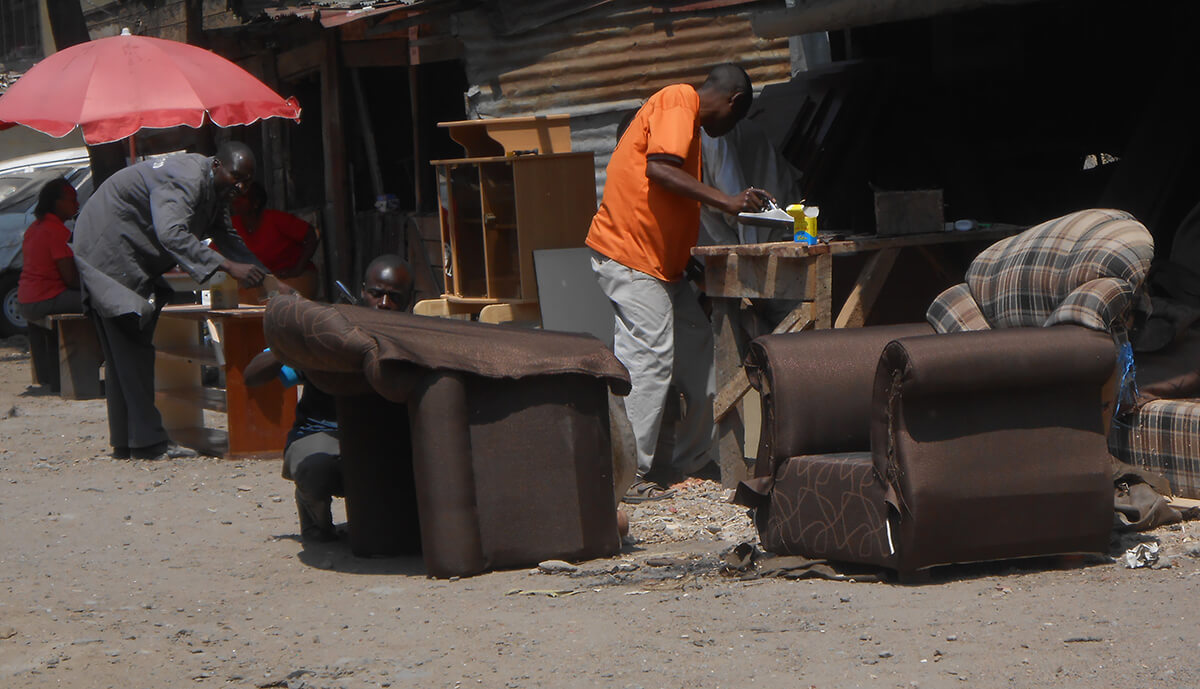 Topmark Furniture, a small business in Nairobi, Kenya
Topmark Furniture, a small business in Nairobi, Kenya
Evaluating Impact
The team calculated that for every dollar spent on the mentorship project, it returned $1.78 in one year—meaning the average increase in profit for a business owner was 78 percent larger than the average cost per person to implement the program.
Given the harsh realities of life in Nairobi and the economic struggles faced by even successful entrepreneurs, the economists were surprised by the enthusiastic response of the potential mentors they approached. Nearly 90 percent agreed to participate, and almost all of the relationships were successful.
“When you match two people at random, all kinds of things can go wrong,” Brooks said. “In Kenya, there are tribal, religious, and political conflicts at play, so we were worried about how many were going to dissolve from the outset when they meet. But the vast majority worked out.”
The research team is planning another trip to Dandora soon to follow up with the business owners who participated to better understand the factors that made the project successful. They also plan to recreate the experiment on a larger scale.
“I’m looking forward to going back and getting a better sense of the underlying channels that generated the impact,” Donovan said.
The economists’ most recent follow-up surveys showed that approximately half of the participants are still meeting with their mentors—even months after the project ended.
“The mentors are excited about it; they keep going with it,” Brooks said. “Six months later, they are still meeting with them. It’s really the best-case scenario we could have envisioned.”
When you match two people at random, all kinds of things can go wrong. In Kenya, there are tribal, religious, and political conflicts at play. … But the vast majority worked out.” Wyatt Brooks, assistant professor of economics


